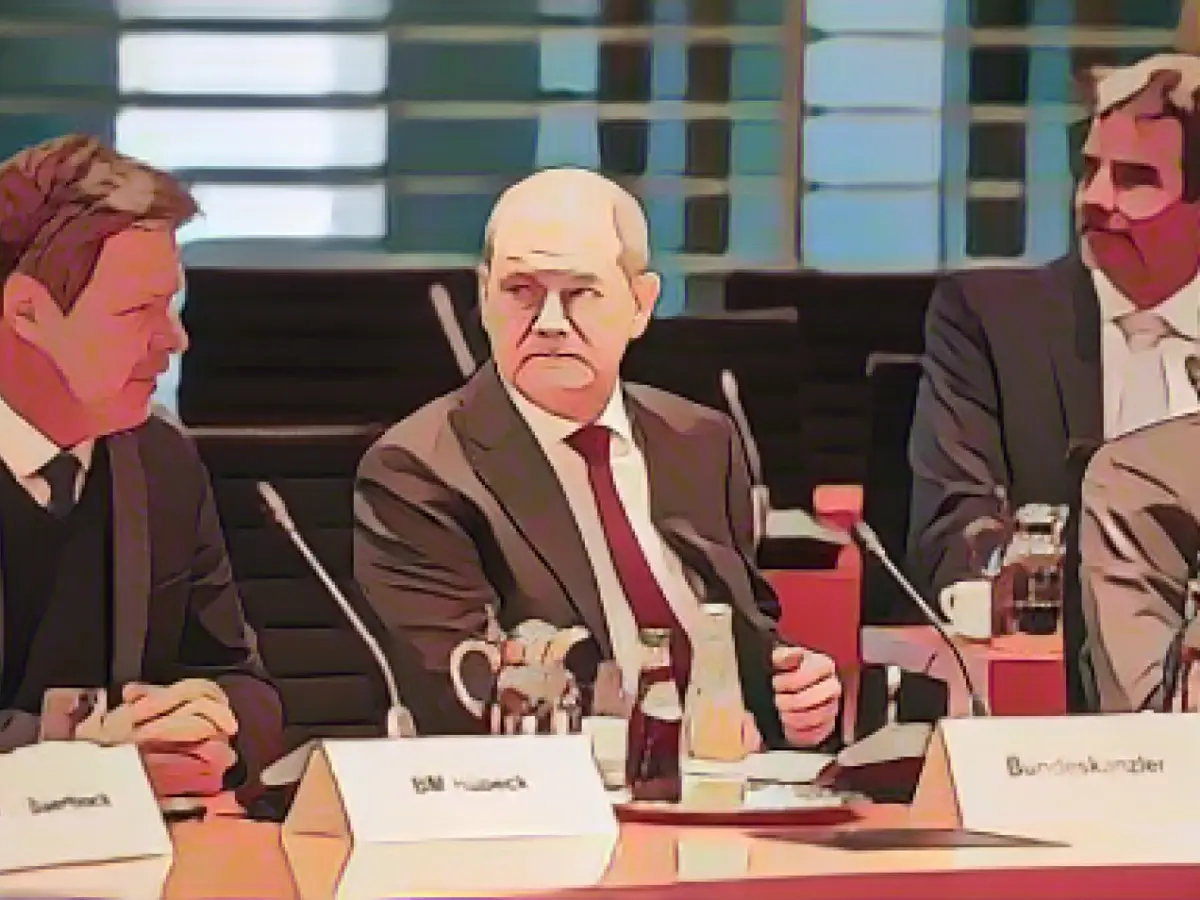Budget Tussle in Germany's 2024 Budget Negotiations
Germany's tripartite coalition government, led by Chancellor Olaf Scholz (SPD), Economics Minister Robert Habeck (Greens), and Finance Minister Christian Lindner (FDP), has yet to reach a consensus on the budget for 2024. This impasse has persisted amidst ongoing negotiations, with a potential agreement expected on Wednesday, according to dpa sources.
Green Party Chairwoman Ricarda Lang, in an interview with BR, voiced her belief that a new draft budget might not be approved during the cabinet meeting on Wednesday, but she anticipates a political decision in short order. The targeted cabinet referral for budget approval by year-end was initially contemplated by the traffic light coalition, but a decision through a circulation procedure may also be considered, which involves the Bundestag and Bundesrat.
Longer negotiations could lead to the Bundestag convening for a special budget week directly before Christmas. Approval in the Bundesrat is scheduled for December 22. Chancellor Scholz, Economics Minister Habeck, and Finance Minister Lindner have identified a budget gap of 17 billion euros for the coming year, partly due to the Karlsruhe budget ruling and the impact on various credit-financed special funds. Discussions are now concentrating on saving costs in various sectors and the possibility of reinstating the debt brake suspension for 2024.
Additional Perspectives
- The ongoing budget impasse in Germany is linked to the debt brake rule, a constitutional provision limiting the central government's budget deficit to 0.35% of GDP. This rule, which has been contentious due to significant investment needs in areas like infrastructure, digitalization, and defense, resulted in a coalition collapse in November 2024.
- Finance Minister Lindner's refusal to suspend the debt brake rule was met with opposition from Chancellor Scholz and Economics Minister Habeck, leading to Lindner's dismissal and the collapse of the coalition. Germany is grappling with a two-year recession, compounded by structural challenges like decreased competitiveness due to reliance on Russian energy and increased competition from China.
- Potential solutions to address the budget gap and stimulate economic growth include the reform of the debt brake, coalition formation, public investment, and economic stimulus measures. Reforming the debt brake can be achieved through proposals like linking new borrowing to the debt-to-GDP ratio, enabling federal states to incur new borrowing, or creating a golden rule to exempt certain investments from the debt brake.
- A coalition between the CDU/CSU and either the SPD or the Greens is the most likely scenario, given their shared stance on debt brake reform, which necessitates a two-thirds majority vote in Parliament. However, the risk of smaller parties like the AfD holding a blocking minority presents a challenge.
Looking Ahead
Public investment and measures to support low-income households and stimulate economic growth are critical in Germany. Identifying and implementing suitable solutions are essential to minimize the impact of the budget impasse, addressing the structural challenges facing the country, and ensuring a robust economic recovery.








